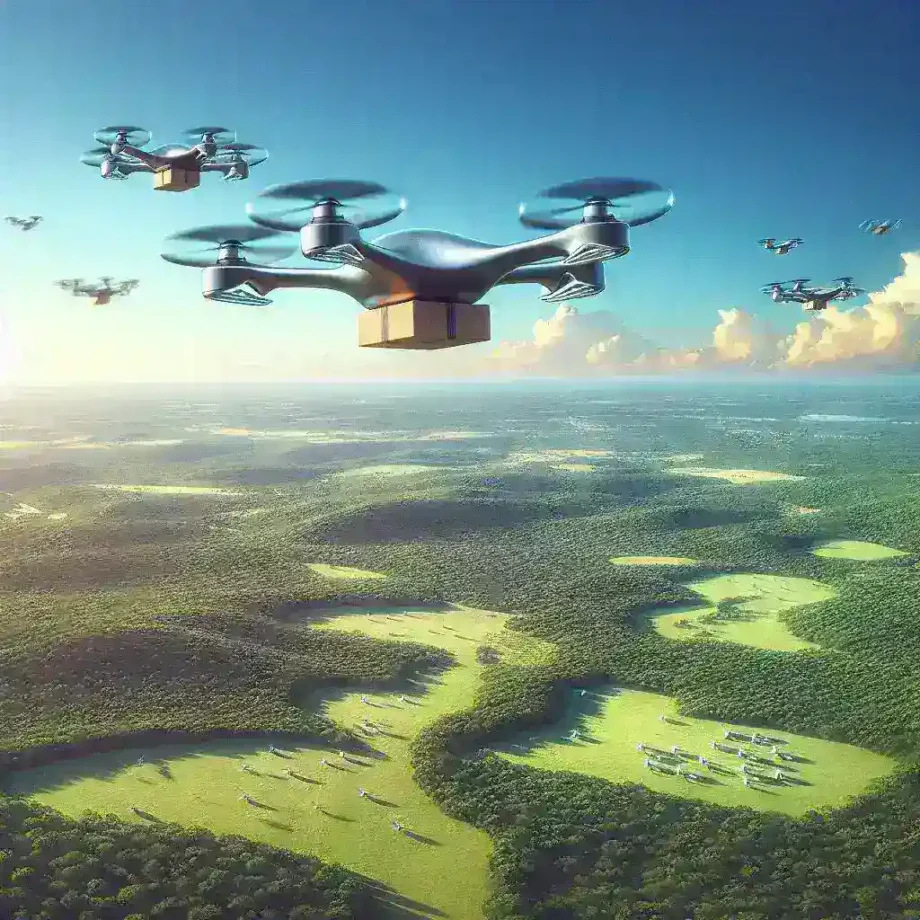
Introduction
As technology advances, the logistics and delivery industry continues to evolve. One of the most exciting developments in recent years is the rise of drone delivery services. This September, Texas and Florida are set to see significant expansions in drone delivery pilots, marking a pivotal moment in the evolution of logistics in these states. This article delves into the implications of this expansion, its benefits, and what the future holds for drone delivery in Texas and Florida.
The Rise of Drone Delivery Services
Drone delivery services are not just a futuristic concept; they are becoming a reality in various parts of the world. These unmanned aerial vehicles (UAVs) are being utilized to transport goods ranging from small packages to food deliveries. The expansion of drone pilots in Texas and Florida is indicative of a broader trend toward utilizing technology to enhance delivery speed and efficiency.
Historical Context
The idea of using drones for delivery has been around for several years. Companies like Amazon and Google have been pioneers, testing drone delivery services in controlled environments. In 2020, several regulatory changes by the Federal Aviation Administration (FAA) paved the way for more extensive use of drones in commercial applications. These changes have allowed companies to conduct pilot programs to test the feasibility and safety of drone deliveries.
Current Developments in Texas and Florida
Texas and Florida have emerged as frontrunners in adopting drone delivery technologies. Major cities like Austin, Dallas, Miami, and Orlando are at the forefront of this expansion. Several companies, including local startups and established logistics giants, are launching pilot programs that aim to assess the practicality of drone deliveries in urban environments.
Key Players Involved
- Amazon Prime Air: Amazon has been testing drone deliveries in select locations and plans to expand its services to Texas and Florida.
- Wing: A subsidiary of Alphabet, Wing is already conducting deliveries in some communities and aims to expand its reach in the coming months.
- UPS Flight Forward: UPS has been exploring drone delivery for several years and is launching new pilot programs in these states.
Benefits of Drone Delivery
The expansion of drone delivery in Texas and Florida brings a host of benefits:
- Speed: Drones can significantly reduce delivery times, often completing deliveries within minutes, compared to traditional methods.
- Cost-Effectiveness: Drones can lower operational costs by reducing the need for ground transportation and human resources.
- Reduced Traffic Congestion: By taking deliveries airborne, drones can help alleviate traffic on busy roads, leading to less pollution and a smaller carbon footprint.
- Access to Remote Areas: Drones can reach locations that may be challenging for traditional delivery methods, ensuring that all communities have access to goods.
Challenges Ahead
Despite the numerous benefits, the expansion of drone delivery pilots is not without its challenges:
- Regulatory Hurdles: Navigating the complex regulatory landscape surrounding drone operations can be daunting for companies.
- Safety Concerns: Ensuring the safety of drone flights in populated areas is crucial to preventing accidents.
- Public Perception: Gaining public acceptance for drone deliveries is essential, as concerns about privacy and noise persist.
Public Perception and Acceptance
Public perception plays a significant role in the success of drone delivery services. Many people are excited about the potential of drones, while others harbor concerns about privacy and safety. For drone delivery companies, addressing these concerns through community engagement and transparency is paramount. Building trust within the communities they serve can significantly impact the effectiveness of pilot programs.
Future Predictions for Drone Delivery
As we look ahead, the future of drone delivery in Texas and Florida appears promising. With ongoing advancements in technology, regulations are likely to become more accommodating, allowing for widespread use of drones in commercial deliveries. Experts predict that by the mid-2020s, drone deliveries could become a commonplace sight in urban environments.
Potential for Expansion Beyond Texas and Florida
If the pilot programs in Texas and Florida prove successful, other states will likely follow suit. The implications of such an expansion could be vast, leading to improved logistics networks nationwide. This could revolutionize not just how we receive packages but also how businesses operate across various sectors.
Conclusion
The expansion of drone delivery pilots in Texas and Florida this September represents a significant step forward in the evolution of logistics and delivery services. With the potential for rapid delivery, cost savings, and reduced traffic congestion, drone technology is poised to change how we think about delivery. While challenges such as regulatory hurdles and public perception must be addressed, the excitement surrounding this innovation cannot be denied. As pilot programs take flight, the future of drone delivery looks bright, paving the way for a new era in logistics.
